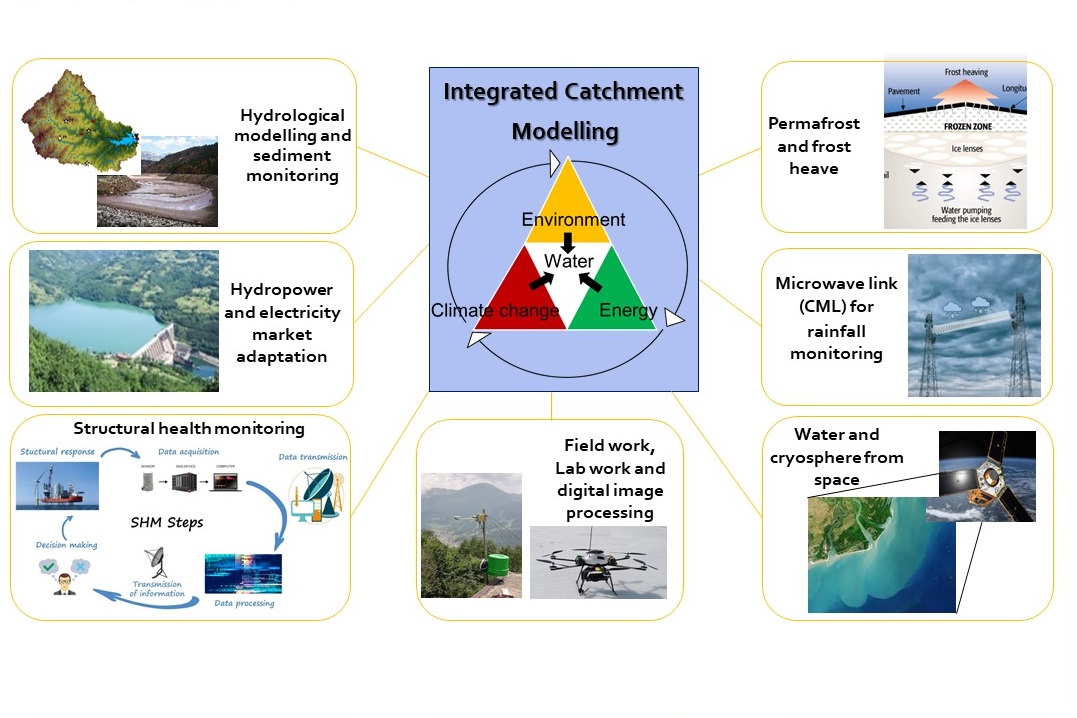This research line contributes to the Department key research area NATURAL SYSTEMS, ENVIRONMENT AND LAND PLANNING: Natural resources management. This research area broadly deals with measuring and modeling of water resource systems for planning and optimal management under present and future scenarios of climate, population, land use constraints.
The section Hydrological processes includes:
- analysis, evaluation and design of water use strategies and processes, development of engineering management and control systems;
- assessment of impacts on natural and artificial networks, water bodies, groundwater and soil, including both liquid phase and sediment transport;
- mathematical modelling for ordinary management and decision support against water scarcity (droughts), including stochastic environment;
- sustainable development of water systems, evaluation of water footprint and trans-national virtual water trade flow, scenarios of medium and long range for water supply and water security within different geographical contexts;
- engineering of dams and river barrages for the prediction of hydrological safety of works, riparian areas and downstream settlements, identification of ageing-related emergencies, evaluation of the economic, ecological and social impacts of barrages, both at national and international level;
- sustainable design of water infrastructure, with a focus on environmental, landscape and functional context, both in new settlements, large infrastructures and urban landscape, and in interventions of functional recovery and restoration of historical works such as the Navigli, irrigation ditches, terraces and karst springs;
- monitoring and modeling of snow and glacier caps dynamics, hydrological contribution in the continental areas using ground and satellite data, determination of snow water equivalent for water resources management;
- water resources modeling under present and future climate change scenarios.

